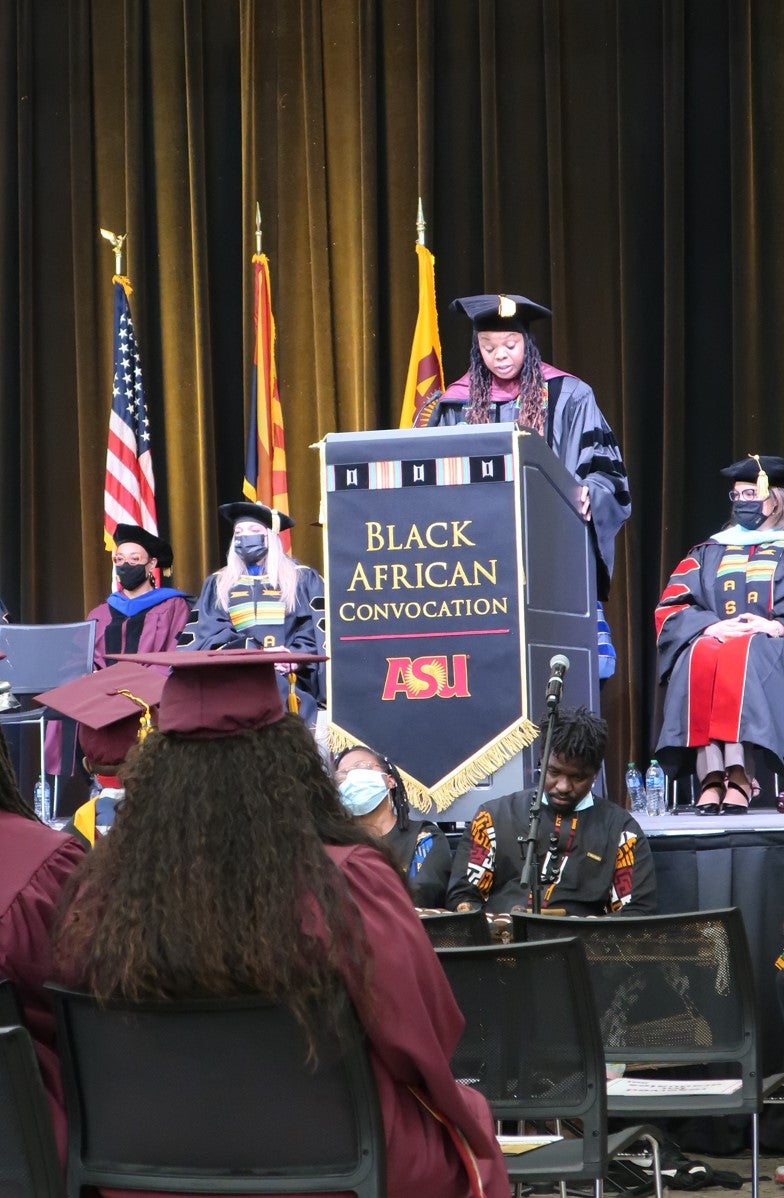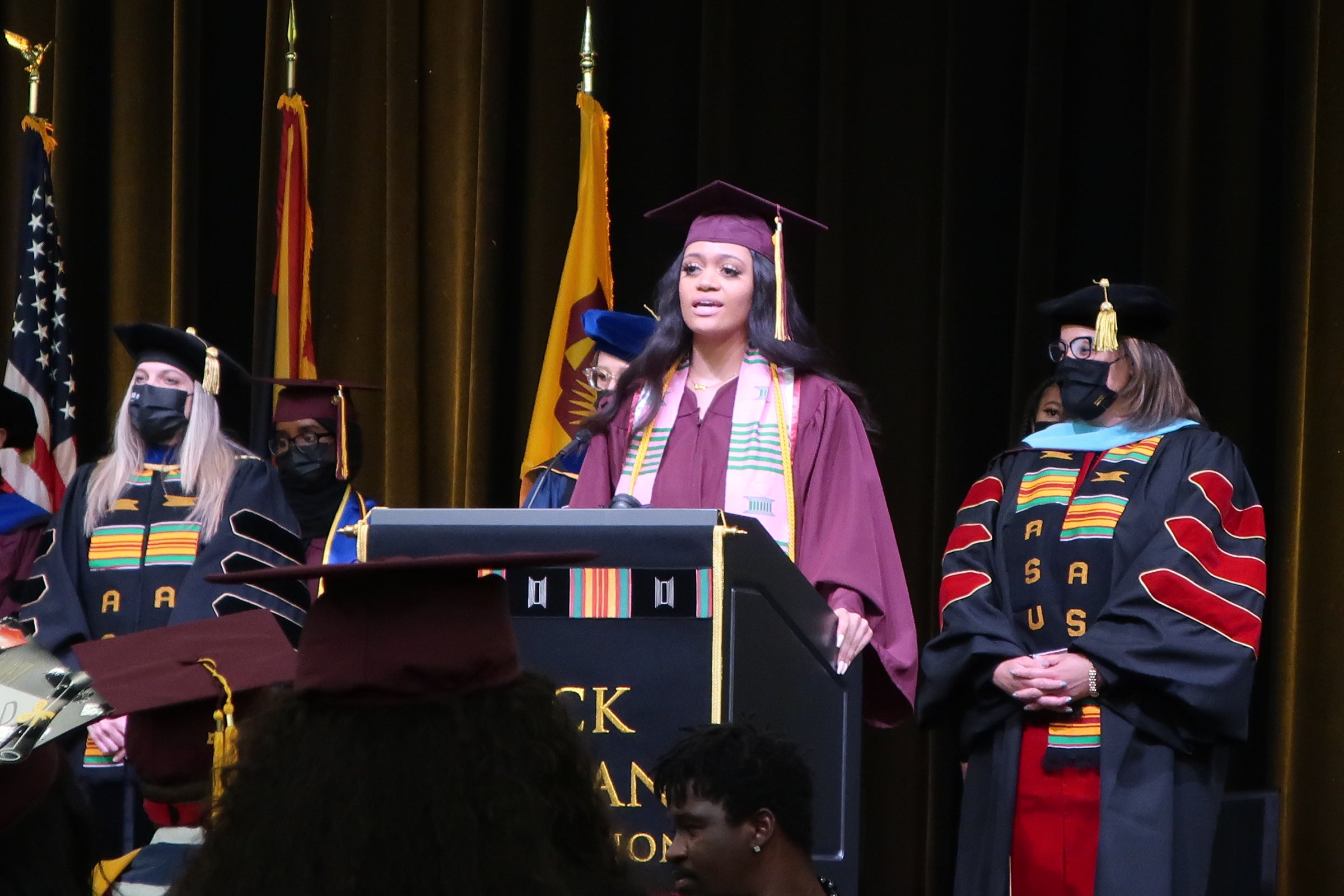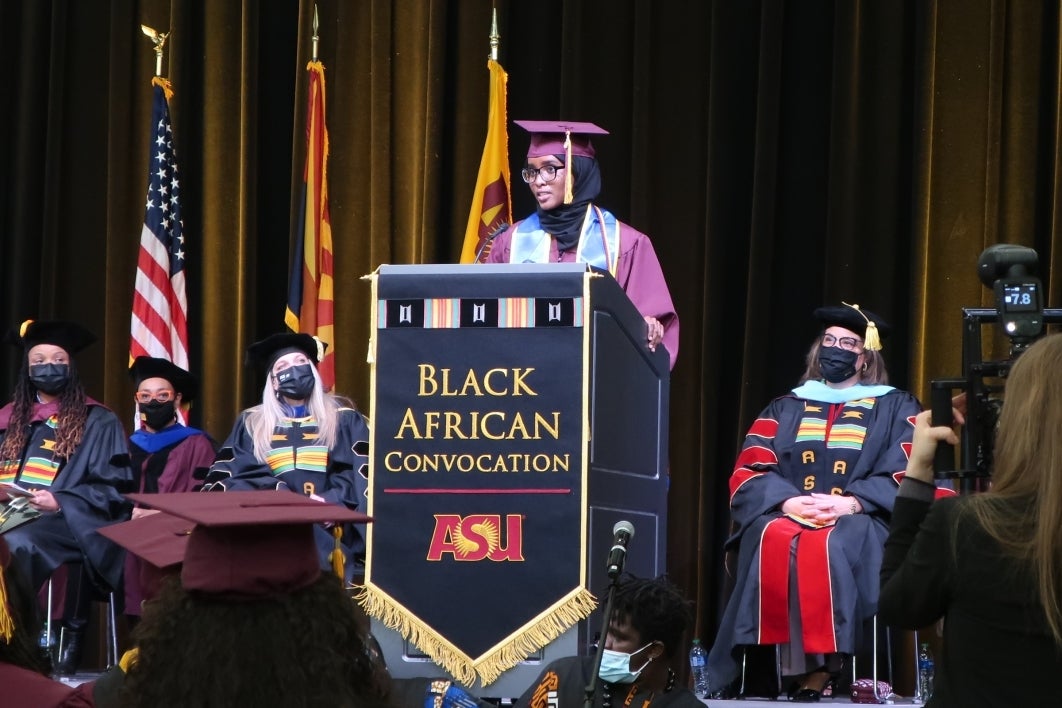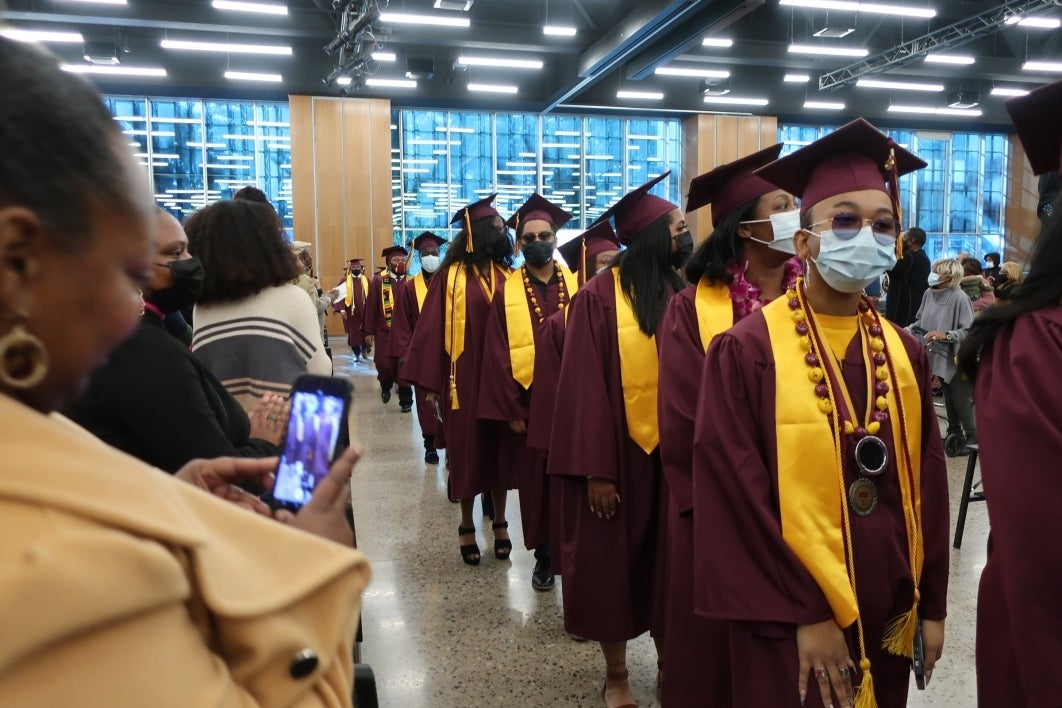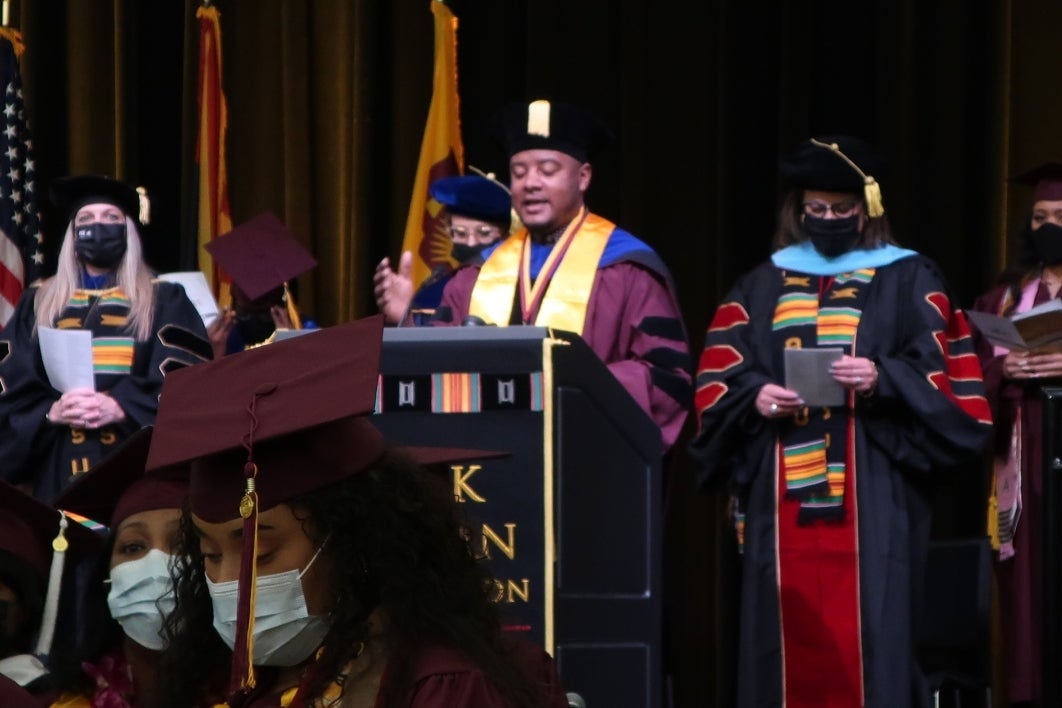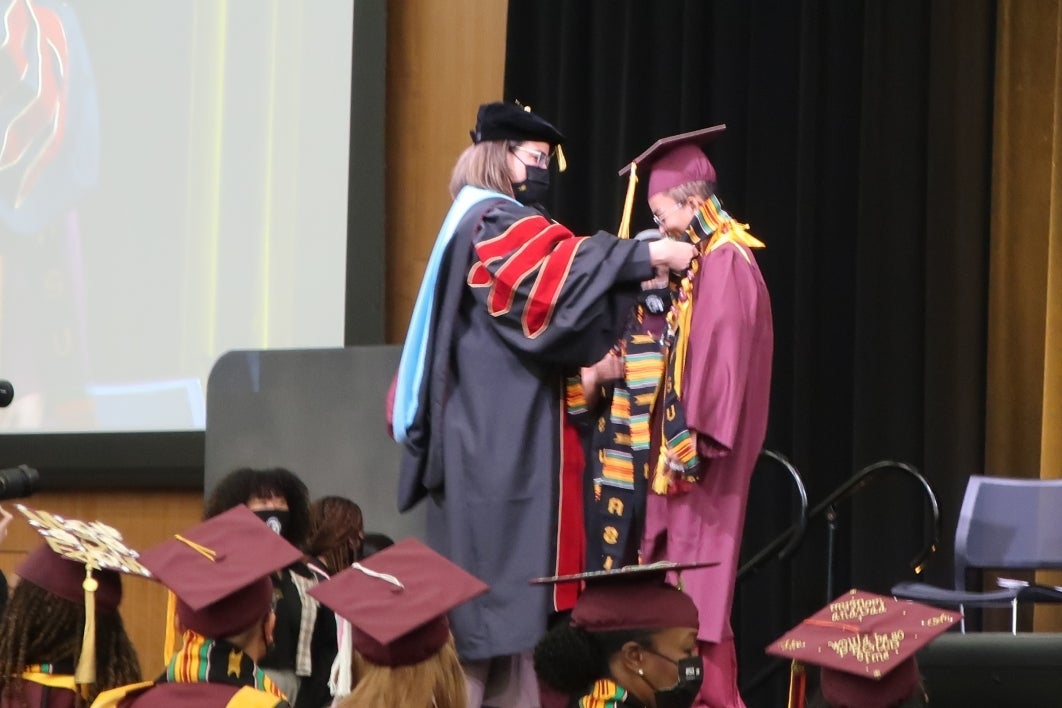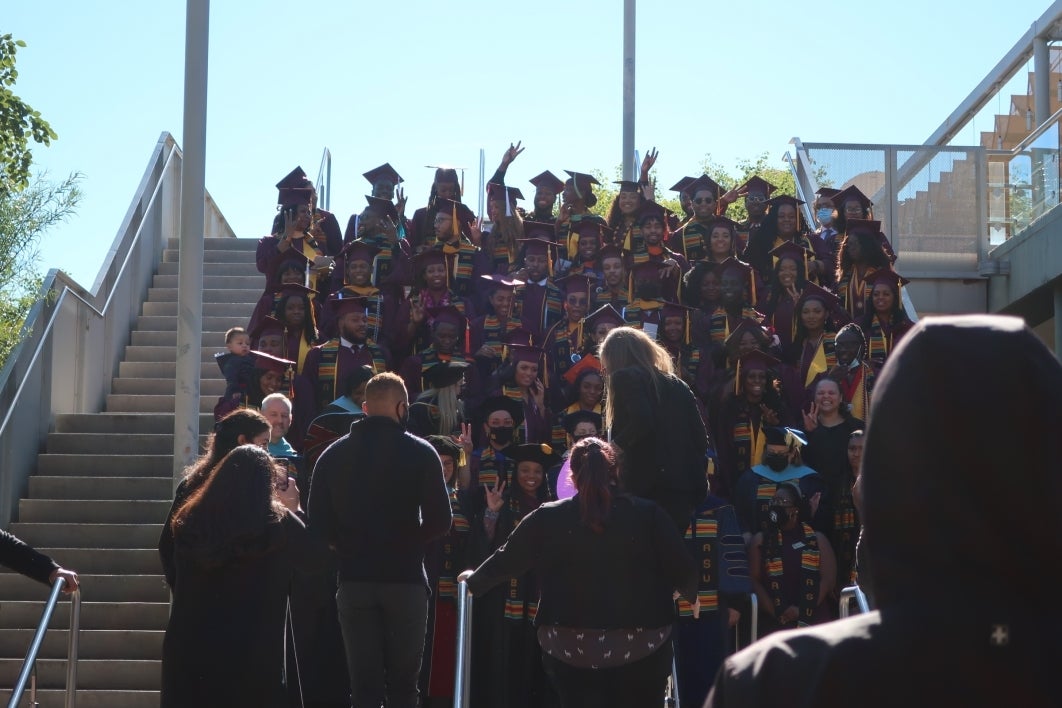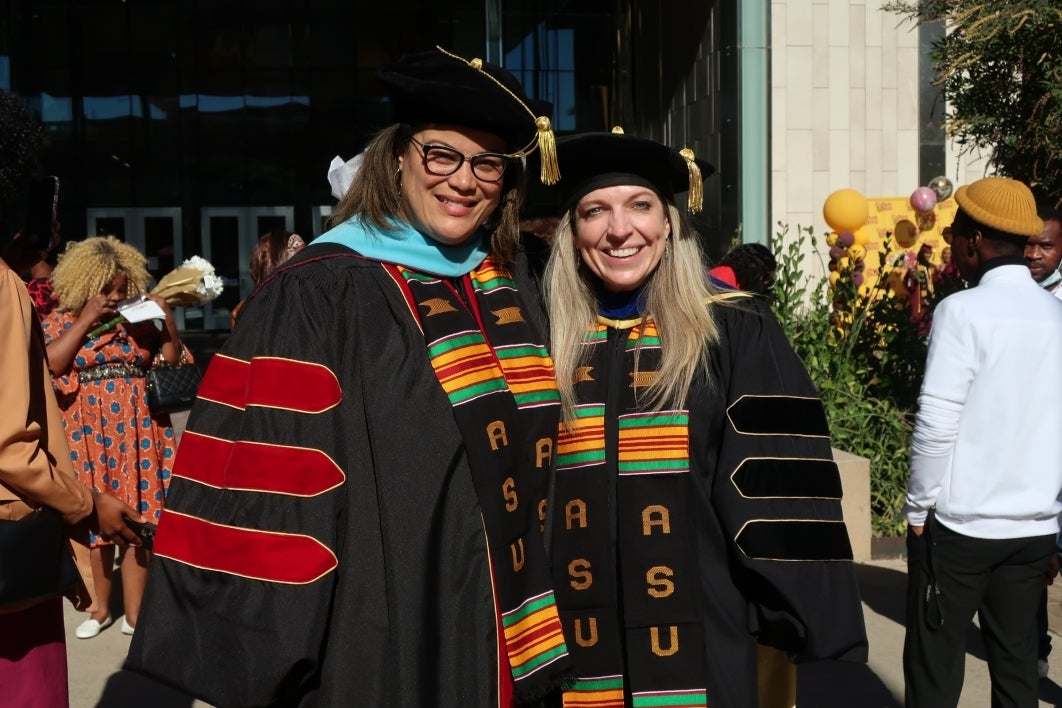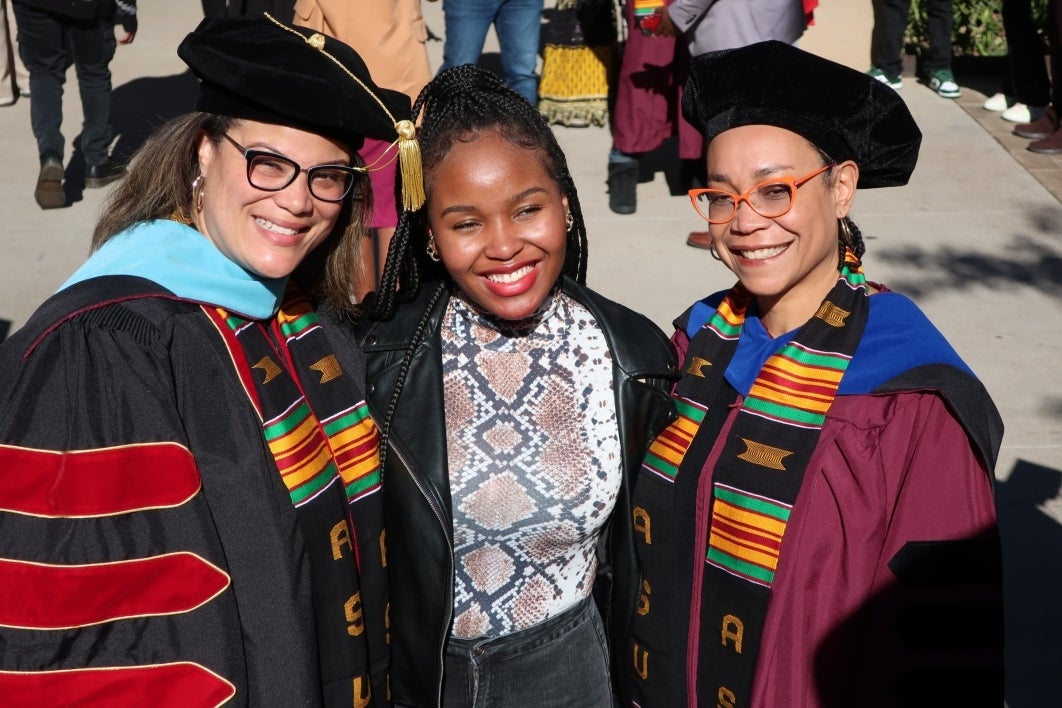It’s a noun Brooke Coley, a bioengineer and social justice scholar, also assigned to the graduating class of 2021 celebrated at Arizona State University's Black African Convocation on Dec. 16. Listen here
In her address as faculty speaker at the special interest convocation, Coley, an assistant professor in engineering at the Polytechnic School of ASU’s Ira A. Fulton Schools of Engineering, rendered visibility on the group she called one of the most “invisible populations” — Black students in higher education navigating two pandemics: COVID-19 and “Racism-20.”
ASU Professor Brooke Coley addresses graduates.
“This duality of being both Black and student in 2020 and 2021 was to live and navigate extreme environmental conditions,” said Coley in reference to the ongoing public health crisis that includes both interpersonal and structural racism, according to the Centers for Disease Control and Prevention
“You’ve been hyper visible and invisible at the same time,” Coley told the mixed group of graduates and undergraduates. “You’ve carried the burden of representation. Your role of being a student was challenged by the role accompanied with your Blackness ... You made it through, and most importantly, you made it here. You have earned the identity of extremophiles. You have everything inside of you that you need to survive anywhere.”
A time for students and faculty to celebrate en masse, the Fall 2021 Black African Convocation — like other graduation activities over the week — marked one of the first in-person graduation gatherings at ASU in two years due to the pandemic, and many were excited to celebrate the moment with classmates, family, friends and mentors.
Cassandra Aska, deputy vice president and dean of students for ASU’s Tempe campus, says the Black African Convocation — one of seven cultural and special interest convocationsSpecial interest convocations at ASU include: American Indian, Asian/Asian Pacific American, Black African, Hispanic, international students, Rainbow Convocation and veteran's honor stole ceremony. at ASU — celebrates our students while honoring the richness of Black culture. Aska, who officiated the ceremony, said the return to an in-person celebration was especially meaningful for graduates (and extremophiles) like newly conferred PhD scholars Kenja Hassan, who earned her graduate degree in nursing and health care innovation while working her full-time job as assistant vice president of ASU's Office of Government and Community Engagement, and the convocation's invocation speaker Dontá McGilvery, who has become the first African American man to earn a graduate degree in theater for youth and community at ASU.
Working toward the completion of their degrees, both Hassan and McGilvery took on additional duties to help address systemic issues in ASU’s community when they were called upon to help launch the universitywide LIFT initiative in fall 2020 alongside other Black students, faculty and staff. Listen to Hassan explain how LIFT amplifies the spirit of ASU's Black African Convocation
An acronym for listen, invest, facilitate and teach, LIFT takes its name in part from the song “Lift Every Voice and Sing," which is widely referred to as the Black national anthem in the United States. The hymn was also a featured presentation at the Black culture convocation. Courtnee King, who graduated from ASU in spring 2021 with a Bachelor of Arts in history and a Bachelor of Science in political science, led attendees in singing the hymn. Listen to King perform here
ASU graduate Courtnee King leads the covocation in song.
King, who just completed the first semester of her master’s degree program at the University of Southern California, said it was important for her to come back to ASU and take part in the in-person celebrations with fellow Sun Devils and other Black graduates. She is now focused on public policy in her graduate studies at USC.
Aniyah Braveboy, who also graduated from ASU in a virtual ceremony in spring 2021, took time out of her work day to attend the convocation and celebrate the PhD conferral of her mentor Hassan.
Braveboy, who graduated with a bachelor’s degree in public service and public policy and a minor in social behavioral sciences, now has her sights set on law school. Having organized the virtual version of the Black African Convocation in the spring through her work as former president of ASU's student-led Black African Coalition, Braveboy said she was thrilled to see the special convocation return to an in-person format and praised the presentation of inspiring speakers, music and culture. Listen to Braveboy describe the ceremony here
Visiting from Florida, Braveboy’s friend Azzaam Bahir, a music education student at the private, historically Black university Bethune-Cookman University, said he too was impressed with the ASU celebration, noting that the occasion marked his first time attending a Black African convocation at a public university. Bahir shared his appreciation for ASU's efforts in acknowledging the challenges Black students have faced in these complicated times.
According to ASU Academic Enterprise, the university conferred almost 1,500 degrees on students who self-identified as Black or African American in the 2020–21 academic year. It is the highest number of degrees conferred upon this specific group of students in any one academic year, and represents a 56% increase from the 961 degrees that were awarded to Black/African American students just five years earlier.
Black/African American student enrollment is also showing growth year after year at ASU, but at just 6% of the more than 135,000 students enrolled in the fall of 2021, the Black/African American population remains modest in numbers when compared to enrollees of other races and ethnicities. From an outsider's perspective, ASU visitor Bahir said the university should keep up the efforts to attract and welcome more Black students to the university. And there are still other ASU students, current and graduating, who say the challenges that come with being an extremophile have only made them stronger. Maryam Abdulle is one of them. Graduating summa cum laude with a Bachelor of Science in biochemistry and a certificate in Arabic studies, Abdulle offered these words of encouragement to her fellow graduates at the Black African Convocation:
"Remember, it's not about where you come from, it's about where you are going and how to achieve that goal. I am confident to say that we are destined for greatness and equipped to achieve anything we put our minds to. Graduating class of 2021, we did it. Only a couple of generations removed from slavery, we have excelled and gone above and beyond anything that they had ever thought we would become. We did that. Don’t ever let anybody forget it ... If there is one thing to take away from this, it is to never give up and never stop learning. Take pride in how far you have come and have faith in how far you will go."
Top photo: Graduates in caps and gowns at ASU's Black African convocation on Dec. 16, 2021. Photo courtesy of Suzanne Wilson/ASU Media Relations
class="glide image-carousel aligned-carousel slider-start glide--ltr glide--slider glide--swipeable"
id="glide-482778" data-remove-side-background="false"
data-image-auto-size="true" data-has-shadow="true" data-current-index="0">
data-testid="arrows-container">
More University news

ASU program recognized as a Center of Actuarial Excellence
Arizona State University’s actuarial science program is now recognized by the Society of Actuaries as a Center of Actuarial Excellence (CAE).There are currently 242 actuarial science programs across…

Edison Awards announces Michael M. Crow as 2025 Achievement Award honoree
FORT MYERS, Fla. — The Edison Awards, an organization dedicated to honoring the world's most innovative new products and services, is pleased to announce Michael M. Crow, president of Arizona…
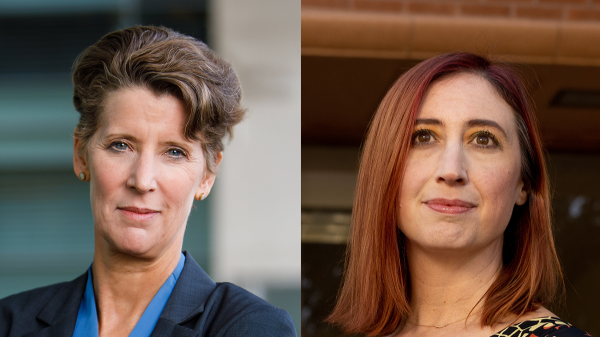
2 ASU faculty members elected to prestigious National Academy of Medicine
Two distinguished Arizona State University faculty members have been elected to the National Academy of Medicine.Sally C. Morton, executive vice president of ASU Knowledge Enterprise, and…

